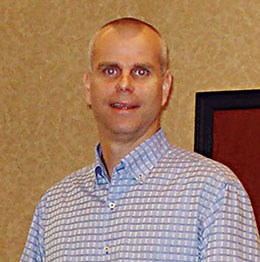The proposal to develop the Southlands took another step forward last Friday morning.
Metro Vancouver's planning and agriculture committee approved sending Delta's application to amend the Regional Growth Strategy to Metro Vancouver's board of directors. If the board gives it preliminary approval, the application will then be subject to a public hearing, likely in late April, before going back to the board for final approval.
Century Group is proposing to build 950 housing units on 20 per cent of the 214-hectare (537-acre) Tsawwassen property.
The remaining 80 per cent would be given to Delta, much of it for farming.
Before making their decision, committee members heard from Delta staff, Century Group president Sean Hodgins and several residents opposed to the proposed development.
"It's been a long haul to get here. Eight years of working very hard," Hodgins said. "I want to give you my commitment to see this through to the end."
He also told the committee that approving the proposed amendment would "put Metro Vancouver on the map for what it can do for agriculture."
After the meeting, Hodgins said the Southlands proposal provides a real model of how to do agriculture at the community level, which would be a benefit to the entire region.
"This would be a regional model of how to integrate agriculture into the fabric of the community," he said.
In his presentation to the committee, Richard Kunz of Southlands the Facts said the proposal does not conform to the five key goals for regional growth.
"For seven long years, two-thirds of Tsawwassen residents have remained steadfast in the majority view that 100 per cent of the Southlands should remain agricultural," he said.
Following the meeting, Dana Masolvat, another Southlands the Facts organizer, said he was disappointed with the committee's decision.
"While I am disappointed at the decision to proceed to a public hearing, it is clear from the Metro staff report that this application does not conform to the recently created Regional Growth Strategy planning principles," he said. "If these principles are used to judge the merit of the application, Metro will have no choice but to reject the development proposal." The report from Metro staff stated that while there is significant regional and local benefits to be gained through the donation of 80 per cent of the site to Delta for agricultural and park use, it is a challenge to determine what level of benefit is sufficient to allow development outside the urban containment boundary when there is already enough space to accommodate population growth in the community.
Richmond Coun. Harold Steves was the only committee member to oppose sending the application to the board.
More than once during the meeting he questioned whether the $9 million commitment from Century Group to improve soil conditions on the 80 per cent being transferred to Delta would be enough.
Delta chief administrative officer George Harvie said staff is "very confident" the $9 million is enough to improve irrigation and the municipality would not be looking for additional funds from Metro Vancouver or taxpayers.
Steves said the soil was in better condition for farming in the past and has deteriorated over the years. "We should not reward the land owner who allowed the land to deteriorate."
Sylvia Bishop, who was the lone Delta councillor to oppose conditional approval of the proposal last fall, said she was disappointed to see Steves was the only committee member to oppose the application.
"If 80 per cent can be farmed, 100 per cent can be farmed," she said.
The next Metro board meeting is March 28.



